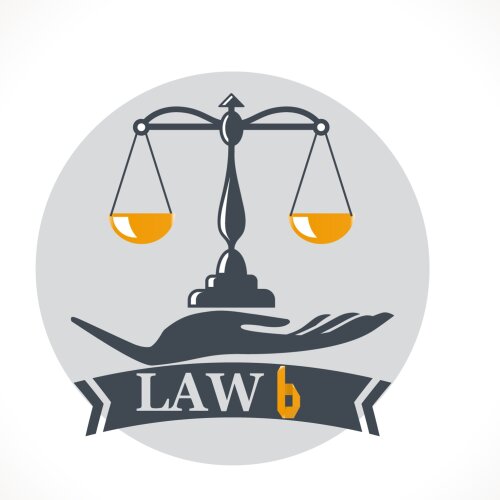Best Family Lawyers in Islamabad
Share your needs with us, get contacted by law firms.
Free. Takes 2 min.
Free Guide to Hiring a Family Lawyer
List of the best lawyers in Islamabad, Pakistan
Pakistan Family Legal Questions answered by Lawyers
Browse our 33 legal questions about Family in Pakistan and read the lawyer answers, or ask your own questions for free.
- Wife is very toxic abusive manipulative from 10 years
- Hello, My wife does not allow me to work outside the home. She constantly makes calls, levels false accusations, and blames me for everything. She can involve anyone—her sister, landlords, or anyone she can use—to manipulate or abuse me. If I am away from home for more than an hour,... Read more →
-
Lawyer answer by Azam Ch Law Associates
It depends with age and gender of kids. Incase of male kids you can secure custody if they are about 12 or older but if they are too young you can't take them. Ultimately you are responsible for their growth
Read full answer - Child visiting rights and joint custody case
- Assalam o Alaikum Here we have mutually agreed on separation although I have initiated this and then the both families Punchayat involved and we returned Dowry articles even a single bangle and they assured us they will have no issue regarding visiting my son and they also write this statement... Read more →
-
Lawyer answer by Muhammad Ali Law Associates
In response to above, note that even though both families agreed on separation, dowry was returned and statements were recorded. These things do not create enforceable custody or visitation rights because custody and visitation are always decided by the Guardian...
Read full answer - Khula from an overseas husband
- Aslamoalikum. What is the process or khula and divorce case taken from husband who lives in France... What is the time duration and what is time duration for embassy attestation
-
Lawyer answer by Qadeer Ahmad Siddiqi Law Associates
Wa-Alaikum-Salam. Thank you for your message. If your husband is living in France, you can still obtain khula or divorce in Pakistan through the Family Court in your city. The court issues a decree of khula, which is then sent...
Read full answer
About Family Law in Islamabad, Pakistan:
Family law in Islamabad, Pakistan deals with legal matters relating to family relationships, marriage, divorce, child custody, inheritance, and more. It governs the rights and responsibilities of family members under the Family Laws Ordinance of 1961. These laws are designed to protect the interests of individuals and promote harmony within families in Islamabad.
Why You May Need a Lawyer:
Seeking legal help from a family lawyer in Islamabad is crucial in various situations. Some common situations where you may require legal assistance include:
- Marriage: If you are planning to get married, a lawyer can provide guidance on registration, documentation, and legal requirements.
- Divorce: When going through a divorce, a lawyer can help you navigate the legal process, division of assets, child custody, and alimony.
- Child Custody: If you are involved in a dispute regarding child custody or visitation rights, a lawyer can help protect your rights and advocate on your behalf.
- Inheritance: When dealing with matters related to wills, property distribution, or inheritance, a family lawyer can ensure a fair and legal resolution.
- Domestic Violence: If you are a victim of domestic violence or need protection, a lawyer can guide you on obtaining restraining orders and taking legal actions against the abuser.
Local Laws Overview:
When it comes to family law in Islamabad, there are key aspects of local laws that are particularly relevant:
- The Family Laws Ordinance of 1961 governs various family matters, including marriage, divorce, maintenance, custody, and inheritance.
- Under Pakistani law, polygamy is permitted but must follow strict conditions and requires prior written permission from the Arbitration Council.
- The minimum age for marriage is 18 for males and 16 for females, subject to certain exceptions.
- Divorce can be obtained through various legal procedures, such as Talaq, Khula, or obtaining a dissolution decree from family courts.
- Child custody decisions are made based on the best interests of the child, considering factors like the child's age, welfare, and parents' ability to provide care.
Frequently Asked Questions:
1. Can a husband divorce his wife without her consent in Islamabad, Pakistan?
In Pakistan, a husband can initiate divorce (Talaq) without the need for his wife's consent. However, the legal procedure and implications may vary depending on the circumstances. It is advisable to consult a family lawyer for guidance.
2. How is child custody determined after divorce in Islamabad, Pakistan?
Child custody decisions are made by family courts based on the best interests of the child. Factors such as the child's age, welfare, and parents' ability to provide care are considered. The court may also take into account the child's own preference if they are old enough to express it.
3. What is Khula in Islamabad, Pakistan?
Khula is a legal procedure initiated by a wife seeking a divorce. It allows the wife to dissolve the marriage by returning her dower (mahr) or an agreed-upon settlement to the husband. A family court typically handles Khula cases.
4. How long does it take to obtain a divorce in Islamabad, Pakistan?
The time duration to obtain a divorce can vary depending on the complexity of the case, mutual agreement between parties, and the efficiency of the legal process. On average, it can take several months to a year to finalize a divorce in Islamabad.
5. What rights do grandparents have regarding visitation or custody of grandchildren in Islamabad, Pakistan?
Grandparents do not have automatic legal rights regarding visitation or custody of grandchildren in Islamabad. However, they can approach family courts seeking visitation rights if it is in the best interests of the child and can provide evidence of a strong pre-existing relationship with the grandchild.
Additional Resources:
- Ministry of Human Rights, Pakistan: https://www.mohr.gov.pk/
- Islamabad Bar Council: http://www.islbc.pk/
- Family Protection and Rehabilitation Centers: Contact local centers for assistance with domestic violence situations.
Next Steps:
If you require legal assistance in family matters in Islamabad, Pakistan, it is recommended to follow these steps:
1. Research: Familiarize yourself with the applicable laws and regulations in Islamabad.
2. Consultation: Schedule a consultation with an experienced family lawyer to discuss your specific situation and seek legal advice.
3. Documentation: Prepare any relevant documents, including marriage certificates, divorce papers, property documents, etc., to assist the lawyer in understanding your case.
4. Legal Process: Follow the guidance provided by your lawyer, who will represent your interests and navigate the legal process on your behalf.
5. Resolve Amicably: Whenever possible, consider mediation or negotiation to resolve disputes amicably and avoid lengthy court proceedings.
Remember, the information provided here is for general guidance only, and it is important to consult a qualified family lawyer for personalized advice based on your specific circumstances.
Lawzana helps you find the best lawyers and law firms in Islamabad through a curated and pre-screened list of qualified legal professionals. Our platform offers rankings and detailed profiles of attorneys and law firms, allowing you to compare based on practice areas, including Family, experience, and client feedback.
Each profile includes a description of the firm's areas of practice, client reviews, team members and partners, year of establishment, spoken languages, office locations, contact information, social media presence, and any published articles or resources. Most firms on our platform speak English and are experienced in both local and international legal matters.
Get a quote from top-rated law firms in Islamabad, Pakistan — quickly, securely, and without unnecessary hassle.
Disclaimer:
The information provided on this page is for general informational purposes only and does not constitute legal advice. While we strive to ensure the accuracy and relevance of the content, legal information may change over time, and interpretations of the law can vary. You should always consult with a qualified legal professional for advice specific to your situation.
We disclaim all liability for actions taken or not taken based on the content of this page. If you believe any information is incorrect or outdated, please contact us, and we will review and update it where appropriate.
Browse family law firms by service in Islamabad, Pakistan
Islamabad, Pakistan Attorneys in related practice areas.

















